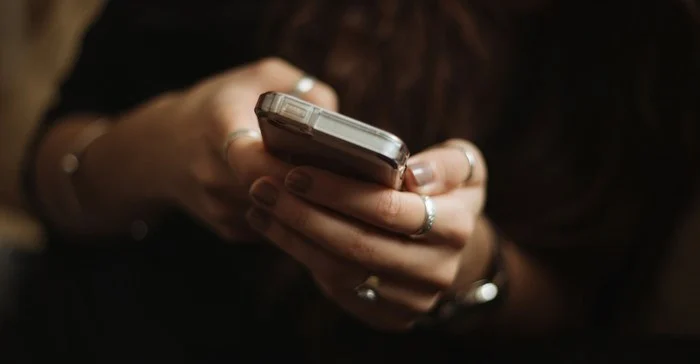- Culture secretary calls for ‘open-minded’ approach to BBC funding system
The television licence could be abolished from 2027, with ministers saying they are “open minded” about how to fund the BBC from that point onwards, suggesting further cuts could be on the cards for the national broadcaster.
The culture secretary, Nicky Morgan, suggested the television licence was an increasingly outdated way of funding the BBC, saying that while she would guarantee its existence in the short term, it was time to look at new ways of subsidising public service broadcasting.
Launching a consultation on whether to decriminalise non-payment of the licence fee, Morgan compared the corporation to the defunct video rental chain Blockbuster, warning that once-mighty media institutions could collapse quickly if they failed to adapt to new formats.
“If you have to criminalise non-payment of the licence fee in order for the BBC to remain relevant then that suggests something is wrong with the model,” she told an audience in central London. “Criminal sanctions are for issues that are damaging to society.”
Morgan said she would guarantee the current model until the end of 2027 but “we must all be open-minded about the future of the licence fee beyond this point”, with alternative suggestions including a system in which different broadcasters would bid for a central pot of funding to produce public service output.
Plans to decriminalise the licence fee and turn non-payment into a civil offence, a move which the BBC estimates will cost it at least £200m in funding and force it to make even more cuts to its output, are a long-term aim of many on the free-market wing of the Conservative party.
But the proposal has also been backed by women’s charities and prison reform campaigners, who say it is unfair that the vast majority of prosecutions are against women.
Naima Sakande, a women’s justice advocate at the law charity Appeal, said: “While the fee funds an important part of our media landscape, it cannot be right that non-payment of this household bill is treated differently from all other expenses.
“Criminal sanctions for this are sexist, outdated and unhelpful. These measures have no place in a modern system of justice.”


More than 120,000 people a year are prosecuted for non-payment of the licence fee, with five people sent to prison in 2018 for failing to pay fines relating to their cases.
The BBC’s director general, Tony Hall, announced last month that he would stand down to allow his successor to conduct negotiations with the government over the amount it can charge for the licence fee – currently set at £154.50 a year – between 2022 and 2027.
This could potentially be the last ever licence fee settlement, with many other European countries already moving away from the licence fee model. In Sweden, almost all adults pay a supplementary tax to fund public service broadcasting, regardless of whether they own a television set, with similar measures taking place in other Nordic countries. Other nations have chosen to fund their national broadcasters directly, using government funding.
A Netflix-style subscription model has also been proposed, although critics have pointed out it would be near-impossible to password-protect existing television channels, and that Netflix, which is loss-making, does not attempt to provide the universal news service offered by the BBC.
Morgan said she was committed to the universal approach of the BBC and its ability to bring together large audiences in one place, suggesting a password-protected subscription was not currently on the cards.
“I truly believe that, no matter how well-funded the international streaming giants are, British broadcasters remain essential. Universal availability means the BBC and other public service broadcasters can still create shared moments that bring the country together, be that through sports coverage, major events, great dramas or documentaries,” she said.
In response to claims the BBC could go the way of Blockbuster, a spokesperson for the broadcaster said: “The BBC tried to set up a Netflix service a decade ago while they were still sending DVDs in the post, but was prevented from doing so by regulators.
“There is a danger that politicians catastrophise the situation. The BBC is the most-used media organisation in the UK. It reaches the most people. It’s used for the most time. You wouldn’t think that from some of the things being said today.”
As 2020 begins…
… we’re asking readers, like you, to make a new year contribution in support of the Guardian’s open, independent journalism. This has been a turbulent decade across the world – protest, populism, mass migration and the escalating climate crisis. The Guardian has been in every corner of the globe, reporting with tenacity, rigour and authority on the most critical events of our lifetimes. At a time when factual information is both scarcer and more essential than ever, we believe that each of us deserves access to accurate reporting with integrity at its heart.
More people than ever before are reading and supporting our journalism, in more than 180 countries around the world. And this is only possible because we made a different choice: to keep our reporting open for all, regardless of where they live or what they can afford to pay.
We have upheld our editorial independence in the face of the disintegration of traditional media – with social platforms giving rise to misinformation, the seemingly unstoppable rise of big tech and independent voices being squashed by commercial ownership. The Guardian’s independence means we can set our own agenda and voice our own opinions. Our journalism is free from commercial and political bias – never influenced by billionaire owners or shareholders. This makes us different. It means we can challenge the powerful without fear and give a voice to those less heard.
None of this would have been attainable without our readers’ generosity – your financial support has meant we can keep investigating, disentangling and interrogating. It has protected our independence, which has never been so critical. We are so grateful.
As we enter a new decade, we need your support so we can keep delivering quality journalism that’s open and independent. And that is here for the long term. Every reader contribution, however big or small, is so valuable.











































